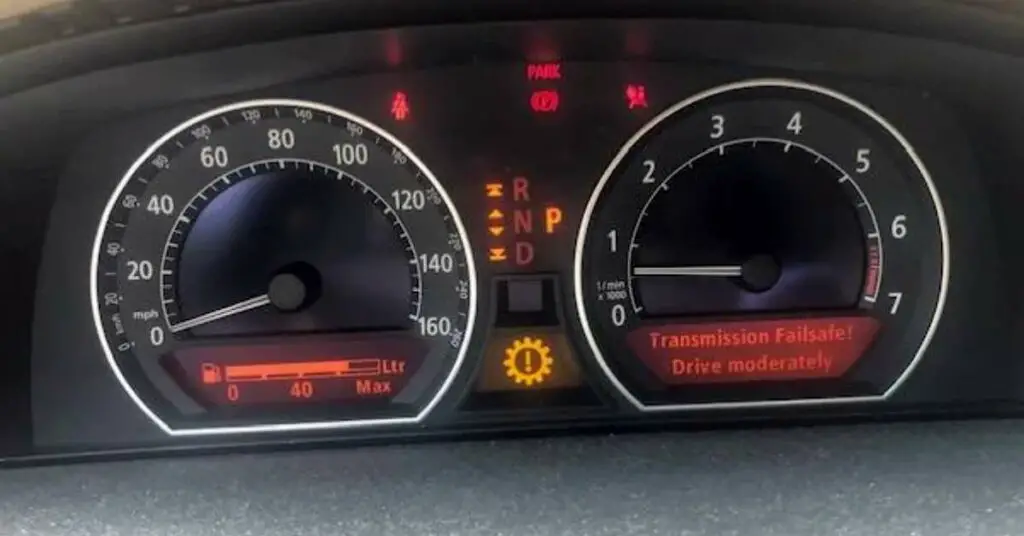
Welcome to the labyrinth of automotive diagnostics. It’s a realm where understanding your vehicle extends beyond its eye-catching aesthetics and thrilling engine purr. When it comes to German engineering marvels like BMW, getting under the hood—figuratively and literally—becomes an intriguing expedition. In this comprehensive guide, our focused spotlight lands on a particular diagnostic trouble code (DTC) that has perplexed many BMW owners – Code 4F81. This code, related to transmission control, is significant for the smooth operation of your vehicle. Let’s gear up to decode this troublemaker and understand its impact on your ultimate driving machine.
Understanding Diagnostic Trouble Codes
Before we delve into the intricacies of the BMW Code 4F81, it’s imperative to comprehend the broader context—the realm of Diagnostic Trouble Codes (DTCs). These are essentially the language that your car’s onboard computer uses to communicate with you when something isn’t right.
Diagnostic Trouble Codes, or DTCs as they are commonly known, are alphanumeric codes that are logged by a vehicle’s onboard diagnostics system when it detects a problem. These problems could range from minor sensor malfunctions to major engine troubles. The primary aim of these codes is to help identify the root cause of a problem and guide a mechanic, or in some cases, an experienced vehicle owner, towards a solution.
BMW, being a pioneer in automotive technology, has an advanced diagnostics system that communicates vital information about the car’s health. The BMW Code 4F81 is one such piece of information that is crucial to the car’s performance. Understanding this code is key to maintaining the efficiency and longevity of your BMW.
Deep Dive into BMW Code 4F81
Diving deep into the enigma of BMW Code 4F81, it becomes apparent that it’s not just a random assortment of numbers and letters but an alert pointing towards a specific concern with your vehicle. The Code 4F81 is specifically related to the car’s transmission system, bearing the message “Ratio Monitoring, Clutch A.”
In layman’s terms, this code is essentially indicative of a potential issue with the car’s automatic transmission system. When your car’s onboard diagnostics system logs this code, it means that there’s an irregularity in the transmission ratio associated with Clutch A. The irregularity could be due to a multitude of reasons such as a worn-out clutch, faulty sensors, or even software glitches.
This code typically appears when your vehicle’s computer senses that the actual gear ratio isn’t aligning with the predetermined gear ratio. Simply put, the car’s computer expects the transmission to be in a certain gear, but it’s either lagging or leaping ahead.
Understanding when and why this code appears is crucial in maintaining the performance of your vehicle, preventing potential damage, and saving costly repair bills. So, what happens when Code 4F81 arises, and what implications does it have for your vehicle?
Implications of BMW Code 4F81
Having the BMW Code 4F81 pop up on your vehicle’s diagnostic system can be somewhat disconcerting, as it typically indicates a more serious issue within your car’s transmission system. Let’s explore some of the symptoms and potential repercussions associated with this specific code.
Symptoms
When this code is present, your vehicle might exhibit several symptoms, such as:
- Unexpected Gear Shifts: The most noticeable symptom is probably unanticipated or harsh gear shifts. This could manifest as a sudden jerk or noticeable delay while shifting gears, as the transmission struggles to align the actual gear with the predetermined gear ratio.
- Transmission Warning Light: The transmission warning light on your dashboard might illuminate, indicating that something is not right with your transmission system.
- Decreased Fuel Efficiency: You may observe a significant decrease in fuel efficiency. This is because the car’s engine has to work harder when the transmission isn’t functioning correctly.
- Vehicle Stalling or Power Loss: In severe cases, the vehicle might stall or experience a loss of power, which could potentially lead to unsafe driving conditions.
Potential Damages and Risks
Ignoring the BMW Code 4F81 could lead to some severe implications:
- Damage to Transmission System: Persistent unresolved transmission issues can lead to further damage within the transmission system, which could be costly to repair.
- Decreased Vehicle Performance: A malfunctioning transmission system will inevitably affect the overall performance of the vehicle, impacting fuel efficiency, speed, and smoothness of ride.
- Safety Risks: If left unaddressed, severe transmission issues can lead to situations like sudden power loss, which could pose significant safety risks while driving.
Given these potential implications, it’s crucial to diagnose the issue promptly, which we’ll cover in the next section.
Diagnosing the Issue
When BMW Code 4F81 appears, it’s a call to action. It’s time to don your detective hat and investigate the root cause of this issue. Diagnosing this code might require a blend of mechanical knowledge, specialized tools, and sometimes, professional assistance. Let’s go through the general steps you can take to diagnose the issue.
Step-by-step Diagnosis Guide
- Verify the Code: The first step in diagnosing this issue is to confirm the code. Using an OBD2 scanner, read the codes from your vehicle’s computer. If the code 4F81 appears, it is indeed pointing towards a transmission issue.
- Check the Transmission Fluid: Next, check the level and quality of your transmission fluid. Low or contaminated transmission fluid can cause several transmission issues. The fluid should be at the correct level and have a clear, reddish color. If it appears dirty or smells burnt, it could indicate a problem.
- Inspect the Transmission for Leaks: A leaking transmission can lead to low fluid levels, causing erratic shifting. Examine the ground where you usually park your vehicle for signs of a leak.
- Check Electrical Connections: Inspect the electrical connectors and wiring going to your transmission. Damaged wires or loose connections could trigger the code 4F81.
- Perform a Test Drive: Finally, perform a careful test drive to observe the behavior of the transmission during gear shifts. Note any delays, jerks, or slipping during gear shifts.
- Seek Professional Help: If the problem persists, it may be time to visit a professional mechanic. Some issues, such as internal transmission damage or software faults, may require professional diagnosis and repair.
Necessary Tools and Equipment
For diagnosis, you would typically need an OBD2 scanner to read the fault codes, a dipstick to check the transmission fluid level, and basic tools for inspecting electrical connections.
Importance of Professional Diagnosis
While it’s possible to perform a basic diagnosis yourself, remember that certain aspects of diagnosing Code 4F81 could be complex and might require professional assistance. Incorrect diagnosis could lead to unnecessary replacements and could potentially worsen the issue.
Fixing the Code 4F81 Issue
Now that we’ve understood the symptoms and diagnosed the issue, let’s move on to addressing the core problem. Fixing the BMW Code 4F81 issue can range from simple solutions like topping off transmission fluid to more complex repairs like clutch replacement or software updates.
General Steps to Fix the Issue
- Address Fluid Issues: If the transmission fluid was found to be low or contaminated during diagnosis, the first step is to address this. Top off the fluid if it’s low or perform a complete transmission fluid change if it’s dirty or burnt.
- Repair Leaks: In case of leaks, identify the source and perform necessary repairs. This could be as simple as replacing a seal or could require more extensive work.
- Check Electrical Connections: If you found damaged wires or loose connectors during your diagnosis, these would need to be repaired or replaced.
- Update Software: In some cases, an outdated software could be causing the issue. If this is the case, a software update may resolve the problem. Note that this usually requires a visit to a professional service center.
- Replace Components: If the issue is due to a faulty clutch or other damaged components, these would need to be replaced. This is typically a complex task and requires professional assistance.
When to Seek Professional Help
Remember, while some fixes can be done on your own, complex issues and repairs should be left to professionals. Transmission repairs can be complicated and require specialized tools and knowledge. If you’re ever in doubt, it’s best to take your BMW to a professional mechanic or service center.
Estimated Cost of Repair
The cost of fixing the Code 4F81 issue can vary greatly depending on the root cause of the problem. Simple fixes like topping off fluid or fixing a leak could be relatively inexpensive. However, if the issue requires replacing the clutch or other major components, the repair could run into several hundred or even thousands of dollars. Always get an estimate before proceeding with major repairs.
Preventing Future Code 4F81 Issues
After dealing with the BMW Code 4F81, it’s natural to want to avoid encountering it again in the future. The good news is, there are some proactive measures you can take to keep this pesky code at bay. Here are some maintenance tips and tricks to prevent the issue from recurring.
Regular Checks on Transmission Fluid: One of the most important aspects of maintaining your transmission system is regularly checking your transmission fluid. Make sure it’s always at the correct level and that it’s clear and free from contaminants. A regular fluid change as per your vehicle’s maintenance schedule can also be beneficial.
Avoiding Excessive Strain on Transmission: Avoid activities that strain the transmission. This includes sudden accelerations, towing heavy loads, or driving at high speeds for prolonged periods.
Regular Inspection for Leaks: Regularly inspect your vehicle for leaks, particularly if you spot fluid on the ground where your vehicle is parked. A leak can lead to low transmission fluid levels which can cause a host of transmission issues.
Timely Replacement of Worn Out Parts: If parts of your transmission system are showing signs of wear and tear, it’s important to replace them promptly. This includes clutches, seals, and sensors.
Regular Vehicle Check-ups: Routine vehicle inspections by a professional can help spot potential issues before they turn into major problems. Regular check-ups allow for early detection and rectification of minor issues, potentially saving you from a significant repair bill.
Software Updates: Ensure your vehicle’s software is up-to-date. BMW occasionally releases software updates that could help optimize the performance of your vehicle’s transmission system.
Remember, prevention is better than cure. Regular maintenance and care for your vehicle can go a long way in preventing issues like the Code 4F81, ensuring your BMW continues to deliver an exceptional driving experience.
Conclusion
Navigating the world of vehicle diagnostics can seem daunting, but with the right knowledge, it turns into an empowering journey of understanding and maintaining your vehicle. The BMW Code 4F81, while potentially troublesome, serves as an important alarm system pointing towards issues in your car’s transmission control.
Addressing this code promptly is crucial not just to keep your car running smoothly, but also to prevent potential damages and safety risks. The journey we’ve embarked on – from understanding what the code signifies, to diagnosing and fixing the problem, and finally, preventing it from recurring – emphasizes the importance of being proactive in vehicle maintenance.
Remember, a BMW is an expertly engineered machine. And as with all machines, the key to longevity and peak performance lies in regular care and maintenance. Whether it’s topping off the transmission fluid, avoiding excessive strain, checking for leaks, or simply getting regular professional check-ups, a bit of prevention goes a long way.
And finally, don’t shy away from seeking professional help when needed. With the right care, your BMW can continue to be your ultimate driving companion, and that’s a journey worth striving for.
In the end, your BMW is more than just a vehicle; it’s a statement, a companion, and an embodiment of engineering excellence. Treat it with the respect it deserves, and it will continue to reward you with unrivaled performance and a driving experience like no other.

As a seasoned mechanic and proud owner of three successful car workshops, I’ve dedicated my life to helping people just like you overcome their everyday automotive challenges. I created this website as a labor of love, with a simple mission: to make car maintenance and repairs more accessible and approachable for the “average joe.”
